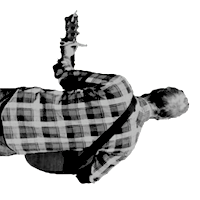A mental model is a representation of a process that I hold in my head.
Mental models allow me to infer and reason about things like songs, computer programs and the universe.
Mental models are powerful tools.
I’m currently learning about Software Testing. One of my first orders of business is to build up some mental models, store them in my head and play them back.
When I read passively, I forget most of what I’ve read. When I stop and actively build mental models, I retain more of the information. I visualize the concepts and ask these questions.
- Where are the focused spots in my mental models, the areas that excite me?
- Where are the weak spots?
- Can I visualize time-based scenarios, get active systems moving in my mind?
- Can I hit pause, play it in reverse?
When I’m building mental models, I don’t concern myself with every nook and cranny. I’m seeking the big picture, the main components and the relationships between them. I can always reference a book or the web for the details.
When I retain the big picture in my head, it reduces learning friction. I don’t have to stop and reference diagrams as often. This helps me find flow.
I carry these models around with me.
I can do mental modeling while lying in bed.
Each mental model that I build is my unique vision, my personal understanding of a system.
My heroes are people with their own understanding of the world. They have unique vision. I want to be like them. Mental modeling helps with this.
published .
Next Post : Tension
Prev Post : Enthusiasm
All Posts
